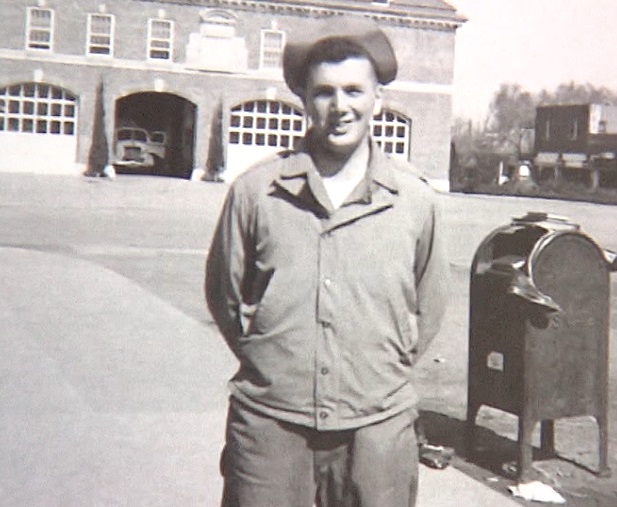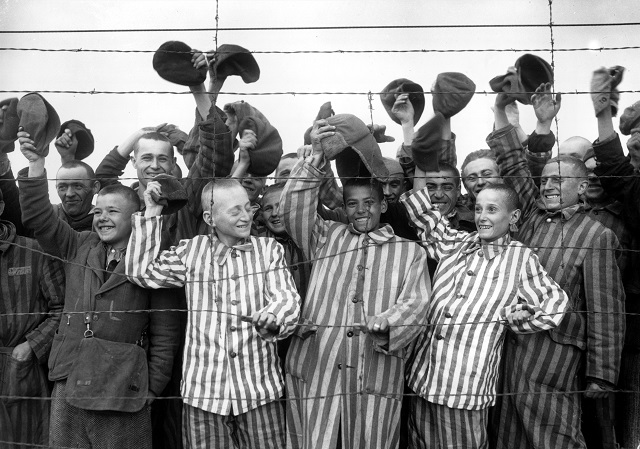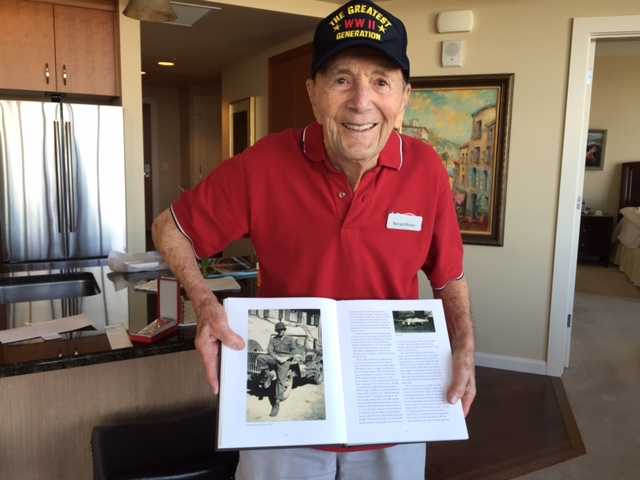PORTLAND, Ore. (KOIN) — “You know, I don’t usually talk about this, so if you don’t mind I’m a little bit nervous when I talk about it. I hope you don’t mind.”
KOIN 6 News didn’t mind. In fact we were honored.
Bernard Brown is 94 and lives at Mirabella along Portland’s South Waterfront.
During the war, he earned the Bronze Star, a Purple Heart, the World War 2 Victory Medal along with many others. In 2017, France recognized him with a Chevalier of International Order of the Legion of Honor.
“It’s a beautiful medal,” he said.
But it’s his efforts as one of the early liberators of Dachau that sticks with him to this day. This is his story, in his words.
Drafted at 19
“Originally when I was drafted I was sent to college because my grades were good and we were sent to the University of Oklahoma. And they were going to train me as an engineer. And the war got bad after 2 terms so they took me and my buddies with our bedroom slippers and bathrobes and sent us to Fort Benning, Georgia to be trained in the infantry.”

He was shipped to Marseilles, France. As they were nearing the beach, the Germans launched an air raid and forced the new soldiers to jump over the side of the ship.
“It was my first introduction to firearms and fighting and stuff like that, and we just had to kill Germans. Terrible thing, absolutely terrible thing,” he told KOIN 6 News. “But we were taught and taught very well that if we didn’t kill Germans or didn’t kill the enemy, they would kill us. Which they did.”
In late April 1945, the US Seventh Army’s 45th Infantry Division began liberating Dachau, the first concentration camp established by the Nazis.
“We were told we were going to be going into a concentration camp, and you gotta prepare for it because you’re going to see a lot of sadness there. We’ve got to get the Germans out of there so we can get the people in there, which are Jews, Poles.”

When they opened the gates, the prisoners “wanted water. And they were just on their knees and they were so thankful that we were there. And that was sort of a difficult thing to see. But when we saw these poor things, it just sort of broke your heart. Just all skin and bones, just tiny little people, been there for a while. See, Dachau was the only concentration camp in the country of Germany.”
Liberating Dachau was an important thing to do, he said, “whether we liked it or not. In fact, the whole war was whether we liked it or not. We had to do it.”
‘My whole life has been fortunate’
Those events of 73 years ago stick with Bernard Brown still.
“It’s been so many years ago. It’s still hard when it comes back. But that’s OK because I, when you’re seeing your buddies being killed and stuff and here I survived, I was pretty fortunate. My whole life has been fortunate. I’ve been very fortunate. Married to my wife for 72 years.”
His experiences made him appreciate life and and to “always take care of those that needed it because that’s what I was trained to do.”
When he came back, he and Selma married. They had 3 children and he became an optometrist. Now, his son is the 4th generation in the family who is in eye care.
On this observance of Veterans Day, Bernard Brown is proud and thankful he was able to serve the United States.
“Things are changing so rapidly and it’s so easy to start saying the wrong things about our country because of our leadership or because of this or that. And we mustn’t ever do that. We have a wonderful country and we want everyone to realize that it’s a country that’s going to last forever. That’s my feeling.”
